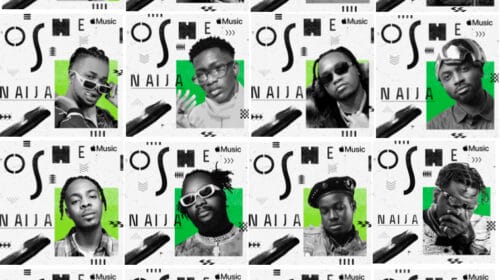America’s Slow Embrace of World Music
African and Afro-Caribbean music have sent some shoots through the American scene. Nightclubs pulse to dancehall and reggaeton. The Broadway musical Fela! spotlighted the Nigerian music giant and political activist Fela Kuti and the prowess of the production’s backup band, the Brooklyn, N.Y.-based Afrobeat group Antibalas. The Malian Tuareg band Tinariwenshook Coachella last year. These days, fans of the all-white quartet Vampire Weekend can hear the Congolese dance music soukous weave through the band’s maddeningly catchy song Cape Cod Kwassa Kwassa.
Across the Atlantic, black world music is a vital part of the mainstream scene. In France, music from Africa and the African diaspora regularly shows up on the hit parade. In the United Kingdom, African musicians sell out major concert halls in London almost every week, said Simon Broughton, co-editor of The Rough Guide to World Music and editor of the magazineSonglines. In the United States, African music has left its imprint on American artists who collaborate with and borrow from Africans, but “we don’t have our African Bob Marley yet,” said Georges Collinet, the longtime host of the weekly public radio show Afro-pop Worldwide.
African music is the foundation of much of the world’s popular music, according to Dan Storper, founder and CEO of the record label Putumayo World Music. American music influences global pop music, and American hip-hop, rock, jazz, R&B can trace their tangled roots back to gospel, which in turn goes back to slave spirituals and the griot tradition. But contemporary African musicians have been listening to American musical exports, too, and they have appropriated them, recast and embellished them, fused them with the music they grew up with. The music from Africa went to the New World, came back again in a different form and goes out again over CDs and the Internet, creating a musical loop.
“There’s nothing that is entirely pure anymore,” Storper said. “There might be music that someone is making in a village. But what gets out and gets popular has all sorts of influences.”
Some of Africa’s most popular acts sound almost entirely like bands you’d hear on an American Top 40 station, like Nigeria’s R&B stars P-Square, composed of identical twins Peter and Paul Okoye. Some clearly merge homegrown and outside musical influences, like the increasingly popular South African kwaito, which Storper describes as “techno-meets-African-music.” You can best hear that braiding of local and imported influences among African jazz and fusion artists, like the South African band Freshlyground, singer and songwriter Eric Wainaina of Kenya, guitarist Lionel Loueke of Benin, and drummer Mokhtar Samba, whose family is from Senegal and Morocco.


